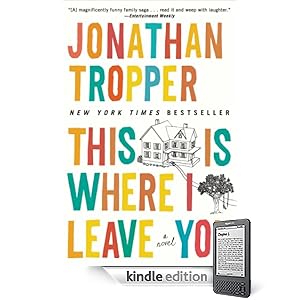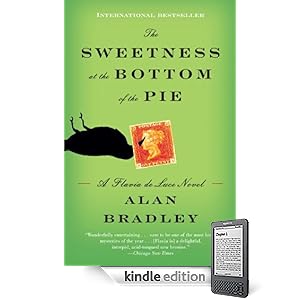I have a mile long wishlist of books at Amazon. I get lost in the "customers who bought/viewed this item also bought/viewed" links. The prices are unbeatable unless you like spending hours scouring used bookstores. I do, but don't have any at my disposle. Unless I manage to read a book in Japanese, which is highly doubtful.
Anyways, since I've been blogging about books a lot more recently (do you actually enjoy my book topics? I still face withdrawals at the absence of class discussion at the end of a book), I figured I'd include what I've been browsing and marking on my "to-read" list. I may start reading one of these in the next 24 hours, or I may just go for a classic and always satisfying love story by Nora Roberts or someone similar. I can't decide.
(All images are linked to Amazon pages. Editorial reviews are in italics, my own opinions follow)

The author's own words: Most of us know or think we know who Ernest Hemingway was -- a brilliant writer full of macho swagger, driven to take on huge feats of bravery and a pitcher or two of martinis -- before lunch. But beneath this man or myth, or some combination of the two, is another Hemingway, one we’ve never seen before. Hadley Richardson, Hemingway’s first wife, is the perfect person to reveal him to us -- and also to immerse us in the incredibly exciting and volatile world of Jazz-age Paris. The idea to write in Hadley’s voice came to me as I was reading Hemingway’s memoir, A Moveable Feast, about his early years in Paris. In the final pages, he writes of Hadley, “I wished I had died before I ever loved anyone but her.” That line, and his portrayal of their marriage -- so tender and poignant and steeped in regret -- inspired me to search out biographies of Hadley, and then to research their brief and intense courtship and letters -- they wrote hundreds and hundreds of pages of delicious pages to another! I couldn’t help but fall in love with Hadley, and through her eyes, with the young Ernest Hemingway. He was just twenty when they met, handsome and magnetic, passionate and sensitive and full of dreams. I was surprised at how much I liked and admired him -- and before I knew it, I was entirely swept away by their gripping love story. I hope you will be as captivated by this remarkable couple as I am -- and by the fascinating world of Paris in the 20’s, the fast-living, ardent and tremendously driven Lost Generation.
I stumbled upon this book today, and I'm incredibly intrigued. I haven't read much Hemingway, but I always want to dig into authors' lives a little and figure out what makes them tick and what makes them write stories that last for decades. The author's interest and extensive research sounds like it'd make for an interesting novel. Add Paris and the 20's into the mix, and it sounds like a really entertaining and interesting read!

Printing presses whirr, ashtrays smolder, and the endearing complexity of humanity plays out in Tom Rachman's debut novel, The Imperfectionists. Set against the backdrop of a fictional English-language newspaper based in Rome, it begins as a celebration of the beloved and endangered role of newspapers and the original 24/7 news cycle. Yet Rachman pushes beyond nostalgia by crafting an apologue that better resembles a modern-day Dubliners than a Mad Men exploration of the halcyon past. The chaos of the newsroom becomes a stage for characters unified by a common thread of circumstance, with each chapter presenting an affecting look into the life of a different player. From the comically overmatched greenhorn to the forsaken foreign correspondent, we suffer through the painful heartbreaks of unexpected tragedy and struggle to stifle our laughter in the face of well-intentioned blunders. This cacophony of emotion blends into a single voice, as the depiction of a paper deemed a "daily report on the idiocy and the brilliance of the species" becomes more about the disillusion in everyday life than the dissolution of an industry.
This one's been marked on my wish list for a few

It all begins with a lost manuscript, a reluctant witch, and 1,500-year-old vampire. Dr. Diana Bishop has a really good reason for refusing to do magic: she is a direct descendant of the first woman executed in the Salem Witch Trials, and her parents cautioned her be discreet about her talents before they were murdered, presumably for having "too much power." So it is purely by accident that Diana unlocks an enchanted long-lost manuscript (a book that all manner of supernatural creatures believe to hold the story of all origins and the secret of immortality) at the Bodleian Library at Oxford, and finds herself in a race to prevent an interspecies war. A sparkling debut written by a historian and self-proclaimed oenophile, A Discovery of Witches is heady mix of history and magic, mythology, and love (cue the aforementioned vampire!), making for a luxurious, intoxicating, one-sitting read.
I'm not a huge science fiction person. I'd rather read about a real person than a vampire or witch, but this one sounds intriguing. It sounds much more interesting than Twilight-esque fantastic stories (yes, I have actually read the series, I'm really not a fan). It sounds like a good read, and sometimes it's fun to get lost in fantastical situations that you yourself will never be in, unlike a love story that may become all too real!

Jonathan Tropper writes compulsively readable, laugh-out-loud funny novels, and his fifth book, This Is Where I Leave You is his best yet. Judd Foxman is oscillating between a sea of self-pity and a "snake pit of fury and resentment" in the aftermath of the explosion of his marriage, which ended "the way these things do: with paramedics and cheesecake." Foxman is jobless (after finding his wife in bed with his boss) and renting out the basement of a "crappy house" when he is called home to sit shiva for his father--who, incidentally, was an atheist. This of course means seven days in his parent's house with his exquisitely dysfunctional family, including his mom, a sexy, "I've-still-got-it" shrink fond of making horrifying TMI statements; his older sister, Wendy, and her distracted hubby and three kids; his snarky older brother, Paul, and his wife; and his youngest brother, Phillip, the "Paul McCartney of our family: better-looking than the rest of us, always facing a different direction in pictures, and occasionally rumored to be dead." Tropper is wickedly funny, a master of the cutting one-liner that makes you both cringe and crack up. But what elevates his novels and makes him a truly splendid writer is his ability to create fantastically flawed, real characters who stay with you long after the book is over. Simultaneously hilarious and hopeful, This Is Where I Leave You is as much about a family's reckoning as it is about one man's attempt to get it together.
I found this one today too. I've never heard of the book or the author before, but the quotes in the review caught my eye. If his whole book is as sharp and witty as those quick comments, I'll be laughing the whole way through.

It's the beginning of a lazy summer in 1950 at the sleepy English village of Bishop's Lacey. Up at the great house of Buckshaw, aspiring chemist Flavia de Luce passes the time tinkering in the laboratory she's inherited from her deceased mother and an eccentric great uncle. When Flavia discovers a murdered stranger in the cucumber patch outside her bedroom window early one morning, she decides to leave aside her flasks and Bunsen burners to solve the crime herself, much to the chagrin of the local authorities. But who can blame her? What else does an eleven-year-old science prodigy have to do when left to her own devices? With her widowed father and two older sisters far too preoccupied with their own pursuits and passions—stamp collecting, adventure novels, and boys respectively—Flavia takes off on her trusty bicycle Gladys to catch a murderer. In Alan Bradley's critically acclaimed debut mystery, The Sweetness at the Bottom of the Pie, adult readers will be totally charmed by this fearless, funny, and unflappable kid sleuth. But don't be fooled: this carefully plotted detective novel (the first in a new series) features plenty of unexpected twists and turns and loads of tasty period detail. As the pages fly by, you'll be rooting for this curious combination of Harriet the Spy and Sherlock Holmes. Go ahead, take a bite.
This one just sounds like fun. I love a good mystery, especially one infused with fun rather than lots of seriousness. The time period and setting sound perfect for a fun escape from 21st century life. Flavia sounds like an entertaining and intelligent lead character that anyone would want to get to know. And if I can find a series I love, it saves me the hassle of trying to pick another book!
Okay, that's a long enough post, eh? Read anything good lately? Got your eye on a new author or book? I'd love to hear all about it. I'll read almost anything and will likely enjoy it I haven't found a book I hated yet, besides maybe Faust, which I just could not get into. Other than that, I'm a big fat open book, so to speak. Which is why picking just one to read is nearly impossible. So feel free to check out the books I've mentioned and wherever else Amazon leads you. In the meantime, I'll be re-reading reviews and hemming and hawing until I can finally just pick one and start reading. It might take a few days.

No comments:
Post a Comment